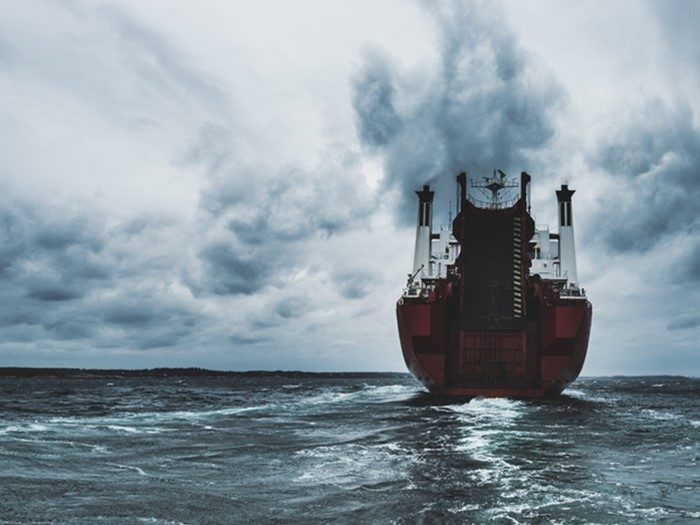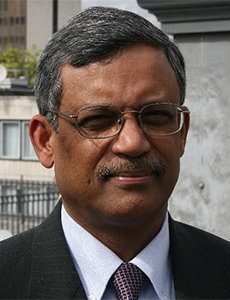Marine Risks
Marine Piracy Rate Dropping

Global acts of piracy dropped by almost 6 percent in 2017, according to an annual report by the International Maritime Bureau (IMB), part of the International Chamber of Commerce. A total of 180 incidents of piracy and armed robbery attempts against ships were reported in 2017, which is the lowest annual number of incidents since 1995, when 188 reports were received. In 2016, a total of 191 incidents were reported, with 150 vessels boarded and 151 crewmembers taken hostage.
According to the most recent report by IMB, in 2017, 136 vessels were boarded, while there were 22 attempted attacks, 16 vessels fired upon and six vessels hijacked. In 15 separate incidents, 91 crewmembers were taken hostage and 75 were kidnapped from their vessels in 13 other incidents. Three crewmembers were killed in 2017 and six injured.
Beyond the global figures, the report underlined several themes from 2017. Most notably there remains persistent danger in the Gulf of Guinea, while the other side of that continent remains warm despite sentencing of some Somali pirates. IMB also reported “mixed results” in Southeast Asia.
Off the west coast of Africa in 2017 there were 36 reported incidents. No vessels were hijacked but there were 10 incidents of kidnapping involving 65 crewmembers in or around Nigerian waters. Seven vessels reported being fired upon in the Gulf of Guinea, a high concentration of 44 percent out of a global total of just 16.
“Although the number of attacks is down this year in comparison with last year,” said Pottengal Mukundan, director of IMB, “the Gulf of Guinea and the waters around Nigeria remain a threat to seafarers. The Nigerian authorities have intervened in a number of incidents helping to prevent incidents from escalating.”
Neil Roberts, head of marine and aviation at Lloyd’s Market Association, concurred that “incidents of piracy and violence are increasing in Nigerian waters, and that country refuses to allow international intervention. They will permit their own armed guards, but will not allow guards of other nationalities.”
Roberts contrasted that to the notable successes in other hot spots. “The three legs of the anti-piracy stool are crew awareness, international naval support and armed guards. Where all three of those are present, there have been no successful attacks. The international cooperation against piracy in the Indian Ocean especially is unprecedented. Nowhere else do you have the Americans and the Russians and the Chinese working together, communicating directly on the same radio frequency.”
That collaboration was first formed to combat piracy off the Horn of Africa, which remains a hot spot. IMB reported that nine incidents were recorded off Somalia in 2017, up from two in 2016. In November, a container ship was attacked by armed pirates approximately 280 nautical miles east of Mogadishu. The pirates, unable to board the vessel due to the ship’s evasive maneuvering, fired two RPG rockets, both of which missed, before retreating.
“Although the number of attacks is down this year in comparison with last year, the Gulf of Guinea and the waters around Nigeria remain a threat to seafarers. The Nigerian authorities have intervened in a number of incidents helping to prevent incidents from escalating.” — Pottengal Mukundan, director, International Maritime Bureau
Six Somali pirates were subsequently detained by the European Union Naval Force, transferred to the Seychelles and charged with “committing an act of piracy” where they face up to 30 years’ imprisonment if convicted.
“That dramatic incident, alongside our 2017 figures, demonstrates that Somali pirates retain the capability and intent to launch attacks against merchant vessels hundreds of miles from their coastline,” said Mukundan.
On the other side of the Indian Ocean, Indonesia recorded 43 incidents in 2017, down from 49 in 2016. The IMB report notes that Indonesian Marine Police patrols continue to be effective in the country’s 10 designated safe anchorages.
In the Philippines, however, the number of reported incidents has more than doubled, from 10 in 2016 to 22 in 2017. According to the report, the majority of these incidents were low-level attacks on anchored vessels, mainly at the ports of Manila and Batangas.
Vessels underway off the Southern Philippines were boarded and crew kidnapped in the first quarter of 2017. However, alerts broadcast by the IMB’s Piracy Reporting Center, on behalf of the Philippine authorities, have since helped to avoid further successful attacks.
Overall, Roberts, who is secretary of the Ocean Hull committee of the International Union of Maritime Insurers, and also sits on its political panel, said that “piracy has been reduced to the level of an annoyance rather than a serious impediment to maritime commerce. Indeed trade goes on, and there does not seem to be any need to change policies.”
The last major change recommended by IUMI was in 2008 when piracy as a peril was shifted from hull to war, together with terrorism. “The hull underwriters were not keen on that because there was a deductible, but as claims escalated it makes sense to group like perils together,” said Roberts. “In the end, the recommendation was widely accepted.” &









